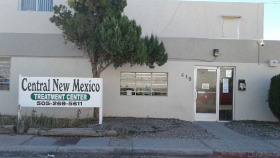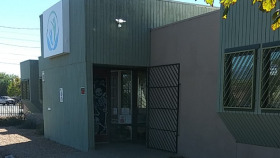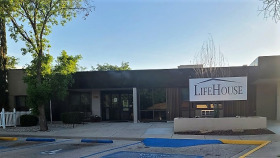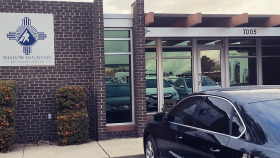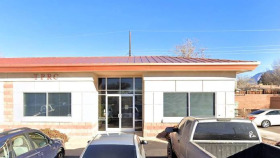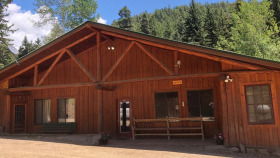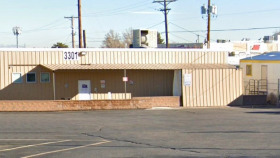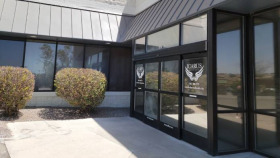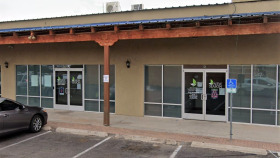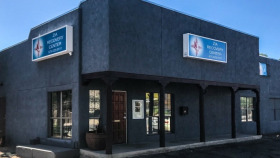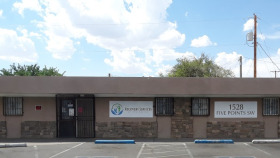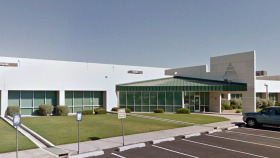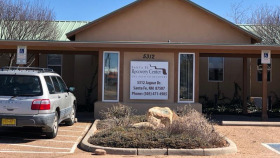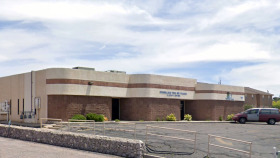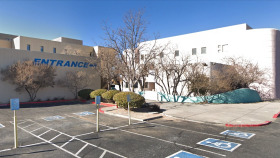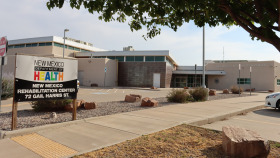Expert Insights
Does it surprise you that retail pharmacy chains are putting themselves before the welfare of their customers? It’s not shocking when you remember profit is a key motivator in business and the opioid epidemic. New Mexico is fighting back. In a recent lawsuit the state reached an estimated $132 million settlement after pursuing legal action against pharmacy retailers for failing to check the medical necessity of customer’s prescriptions. The settlement funds will be used for opioid abatement programs as the state fights the rise of drug related deaths within its state lines.
~ Lesley Wirth
How Much Does Drug Rehab Cost in New Mexico?
New Mexico is ranked 39th nationwide in terms of addiction treatment affordability, with an average cost of drug and alcohol rehab of $57,989 (without insurance).
- Medical detox is the most expensive, with an average cost of $142,964
- Long-term inpatient drug rehab in New Mexico costs an average of $51,172
- Outpatient addiction treatment in New Mexico costs an average of $8,503
- Outpatient methadone treatment is the most affordable, with an average cost of $7,555
The cost of rehabilitation consists of various factors, such as:
Whether the program is inpatient or outpatient
Features and amenities (luxury or standard facility)
The length of treatment
Your health insurance plan
Whether the facility or detox center accepts your insurance
The geographic location
Paying For Addiction Treatment in New Mexico
Addiction treatment can be expensive, especially if you go to drug or alcohol rehab. There are resources in New Mexico that can help put drug treatment within your reach. New Mexico is one of the states that passed Medicaid expansion, making it easier to qualify for Medicaid to help pay for drug treatment.
If you don’t qualify for Medicaid, you may be able to get treatment through your health insurance. If you don’t have insurance, you may be able to qualify for financial aid at some rehab centers. Some places also charge their fees on an income based sliding scale. If you have little money, no insurance, and no way to get insurance, there are some addiction treatment centers that provide totally free care or don’t bar people from treatment if they have no way to pay for it.
Self Pay and Private Insurance
Most people pay for care at drug rehab centers in New Mexico through their health insurance. Some may also pay out of pocket. Many people get health insurance either through their employer, Medicaid or Medicare. If you can’t get insurance from any of these options, then one place where you can get private insurance is by going through BeWell New Mexico. This is New Mexico’s health insurance marketplace. If you qualify for health insurance subsidies through the Affordable Care Act and the Inflation Reduction Act, the BeWell Marketplace is where you’ll find them. If you don’t meet the citizenship requirement for Medicaid, you might be able to get major subsidies by using BeWell New Mexico.
Medicaid
If you have Medicaid in New Mexico, you have coverage for addiction treatment. The Medicaid program in New Mexico is also known as Centennial Care. New Mexico is one of the states that approved Medicaid expansion under the Affordable Care Act. In expanding Medicaid, more people are able to qualify for it than before the expansion.
There are a number of considerations, but if your household makes less than 138% of the federal poverty level, you may be eligible. Children and pregnant women can have higher household incomes and still qualify. You can apply through the YesNM Portal.
Medicare
Most people who are over 65 or disabled are eligible for Medicare5. Medicare is a federal health insurance program designed to cover people who are retired or who can’t work due to a disability. It covers addiction treatment.
You can either have traditional Medicare that is offered directly by the federal government, or you can get a Medicare Advantage plan that is administered by a private health insurer. Medicare Advantage plans must cover the same services as traditional Medicare, but they can impose a network. If you’re considering a Medicare Advantage plan and suspect that you’ll need addiction treatment, check that the company you’re considering has substance use treatment providers in its network.
Military Insurance
People who are serving or who have served in the armed forces may get health benefits as a result of their service. If this is your situation, these health benefits usually cover addiction treatment. There are a few different types of military health insurance benefits and they differ in how they cover it.
If you get health care through the U.S. Department of Veterans Affairs, then you can also get addiction treatment through them. Their addiction services are comprehensive and include every level of care from outpatient to residential.
If you get your benefits through TRICARE, they also cover substance use treatment, but operate more like an insurance company. You will need to find services through a provider in their network. In New Mexico, the network that serves you is TRICARE West.
One more military health benefits provider is the Civilian Health and Medical Program of the Department of Veteran Affairs, or CHAMPVA. They also cover addiction treatment, but how you would access it depends on a few different factors. Some VA health centers also care for people with CHAMPVA benefits, so you may be able to get your care at a VA.
If you’re already getting your medical care at a VA then you may be able to get your substance use treatment there too. Additionally, many providers that are in network for TRICARE will also cover people with CHAMPVA benefits, but you will need to verify that they do.
Tribal Funding for Addiction Treatment
Native Americans who live in New Mexico have access to free services at Indian Health Service clinics. These clinics can be a good starting point because they often have outpatient substance use treatment services and case managers that can connect you with community supports.
In addition to these free services, you may also be able to get free or heavily discounted health insurance if you’re a member of a federally recognized tribe.10 Health insurance supplements the free care you already receive through the IHS and doesn’t stop you from continuing to see your providers there. With insurance, you can get access to additional addiction treatment services that are covered by your health insurer. You can find insurance plans for Native Americans at the BeWell New Mexico Health Insurance Marketplace.
Other Low-Cost Options
Not for profit hospitals and addiction treatment centers may be able to give you financial aid or a discounted rate if you ask about it. Community health case managers may know about affordable or free resources that are specific to the county you live in. There are also faith based addiction centers that help people stop using drugs through worship and Bible study. These programs are sometimes free.
Finding Low-Cost and Free Drug Rehab Centers in New Mexico
As of 2024, there were over 180 drug rehab facilities across the state of New Mexico. These facilities accept several payment methods. Of those treatment facilities, the following numbers reflect how many drug rehabs offer free or low-cost treatment programs:
State-funded facilities utilize public resources to provide help to those in need. Organizations like the Substance Abuse and Mental Health Services Administration (SAMHSA) offer block grants to addiction treatment centers across the country to facilitate low-income programs. You can find places that offer sliding-scales fees as well as scholarships, thanks to these grants.
Free Addiction Treatment Resources in New Mexico
New Mexico Community Health Centers
A good place to start if you’re looking for substance use treatment is at a local community health center. These health centers receive federal funding. In return, they commit to serving the health needs of people in the community, regardless of their ability to pay or their citizenship status.
While these clinics aren’t free, if you make below a certain income the fee is nominal. There are over 140 of these behavioral health clinics in New Mexico. If you need a higher level of care than outpatient you can work with their case managers to get connected. You can find a clinic near you by visiting the website and entering your zip code.
New Mexico Rehabilitation Center
This is a state run drug and alcohol rehab in Roswell. They have a mission to serve anyone who needs help whether or not they have the means to pay.12 You can get medical detox, residential rehab and intensive outpatient services there. The residential program is 28 days long. The intensive outpatient program time commitment is three hours per day, three days each week.
Turquoise Lodge Hospital
This is also a state run addiction treatment center. They are located in Albuquerque. They treat all adults with substance use disorder, but they prioritize pregnant people, injection drug users, women with dependants and people who are trying to get custody of their children back. They are committed to serving people who need treatment regardless of their ability to pay.
Santa Fe Recovery Center
Santa Fe Recovery Center is a non profit that is committed to helping people recover from substance abuse in an inclusive environment. Financial aid may be available for those in need. They have locations in Santa Fe and Gallup.
They have separate treatment tracks for men and women. The women’s program allows mothers to bring their children who are aged six or younger. In addition to residential treatment they also have transitional housing, outpatient treatment and medication assisted treatment for people with opioid use disorder.
Cenikor Farmington
Cenikor Foundation is a not for profit drug and alcohol rehab.15 They pride themselves on their affordability. They’re in network with many insurance providers as well as Medicaid and Medicare. They offer every level of care for adults and teens. They also have recovery housing for adults as well as services that are just for veterans.
Navajo Nation Division of Behavioral Health and Mental Health Services
Members of federally recognized tribes can get free substance abuse treatment at the Navajo Nation Division of Behavioral Health and Mental Health Services.16 They have outpatient treatment centers across the Navajo nation. In New Mexico, they have outpatient centers in Gallup and Crownpoint. Their residential treatment center is in Shiprock.
HopeWorks New Mexico
HopeWorks New Mexico is an organization that connects homeless people with resources including addiction treatment. They’re equipped to work with anyone no matter their insurance or ability to afford treatment. They offer outpatient addiction services and their case managers will help you find other resources you may need including affordable housing and drug rehab.
New Mexico Treatment Services
This is a clinic that treats opioid use disorder with medications. The medications they use include methadone, buprenorphine and naltrexone. Their services include outpatient mental health treatment and counseling. They take private insurance, Medicare and Medicaid. Their services are affordable for people who pay out of pocket.
Drug Use Statistics in New Mexico
Studies show that New Mexico is heavily impacted by drug use, particularly opiates and its relatively new problematic form, fentanyl. According to research done by the New Mexico Department of Health:4

New Mexico has the 11th highest rate of overdoses in the country as of 2020.

Methamphetamine-related deaths increased 280% between 2015 and 2020.

A quarter of deaths related to opiates were caused by prescription medication.

In 2020, one NM resident died about every 11 hours due to a drug overdose.
Drug Laws in New Mexico
Recreational Adult Use Marijuana Law
In New Mexico, it’s legal for you to have marijuana under a certain amount, but it’s not legal for you to buy or sell it. If you’re over 21 you can have up to two ounces of cannabis, six mature plants and six immature plants without going afoul of state law. If you have more than that you could potentially be charged with a misdemeanor or a fourth degree felony.
Medical Cannabis Law – The Lynn and Eric Compassionate Use Act
If you have a qualifying medical condition, New Mexico law allows you to use cannabis with fewer restrictions than the recreational adult use law. To quailfy, you need to be diagnosed with a qualifying illness and get your name placed on a government registry.
The government gives you a card that proves you’re on the registry. You show the card when you’re buying cannabis at a dispensary. You can’t legally buy cannabis in New Mexico unless you’re on the compassionate use registry and unless you do it at a licensed dispensary.
Job Protection for People Who Use Medical Cannabis
New Mexico makes it illegal for your employer to take action against you for using medical cannabis, but there are a few exceptions. If your profession requires you to be alert for safety reasons, such as driving, your employer can still take action against you for using cannabis, even with a medical cannabis license. If you’re clearly impaired on the job, your employer can also still take action against you.
Buprenorphine Treatment For Incarcerated People
Since March 2024, if you’re being treated with buprenorphine for opioid use disorder, the state must continue your treatment if you end up incarcerated in their custody. While many county jails in New Mexico were continuing treatment for inmates who had come in on buprenorphine, the state was stopping the treatment when inmates were transferred to a state run prison. They can no longer do that. People who are forced to stop buprenorphine treatment go through withdrawal and are at higher risk of death by overdose.
Resources
- New Mexico Population 2020 (Demographics, Maps, Graphs). (n.d.). Worldpopulationreview.com.
- Substance Abuse Epidemiology. (n.d.). Www.nmhealth.org.
- FindTreatment.gov. (n.d.). FindTreatment.gov.
- New Mexico Department of Health. (2021). Drug Overdose in NM Factsheet March 2021
- Substance Abuse and Mental Health Administration. (2022). Treatment Locator.
- Centers for Medicare & Medicaid Services. (2022). Eligibility.
- National Library of Health. (2022). Substance Abuse: Clinical Issues in Intensive Outpatient Treatment. Chapter 3. Intensive Outpatient Treatment and the Continuum of Care.
- Substance Abuse and Mental Health Services Administration. (2022). Medication-Assisted Treatment.
- Substance Abuse and Mental Health Services Administration. (2022). Methadone.
- Substance Abuse and Mental Health Services Administration. (2022). Buprenorphine.
- Substance Abuse and Mental Health Services Administration. (2022). Naltrexone.
- National Alliance on Mental Illness. (2022). Antabuse.
- National Alliance on Mental Illness. (2022). Acamprosate.
- New Mexico Legislature. (2017). Harm Reduction Program Overview.
- New Mexico Department of Workforce Development. (2022). New Mexico Paid Sick Leave.
- the University of Mexico. (2022). Jail Diversion Services.







